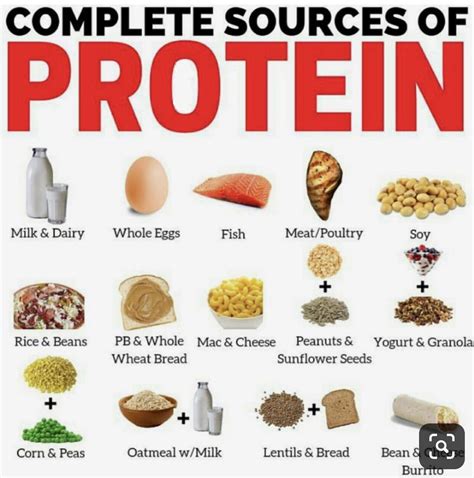Optimal nutrition for sustained energy, muscle recovery, and mental clarity?

Fueling Peak Performance: A Holistic Nutritional Approach
In our demanding daily lives, whether we’re athletes, busy professionals, or simply striving for a higher quality of life, the quest for sustained energy, efficient muscle recovery, and razor-sharp mental clarity is universal. While often pursued through various means, the most fundamental and impactful lever we can pull is optimal nutrition. It’s not just about eating; it’s about strategically fueling your body and mind for peak performance, longevity, and well-being.

The Macronutrient Foundation: Energy, Repair, and Function
Macronutrients—carbohydrates, proteins, and fats—are the cornerstones of your diet, each playing distinct yet interconnected roles in supporting your body’s complex systems.
Carbohydrates: The Primary Energy Source
Often misunderstood, carbohydrates are your body’s preferred fuel, especially for high-intensity activities and brain function. The key lies in choosing the right types:
- Complex Carbohydrates: Found in whole grains (oats, quinoa, brown rice), legumes, and starchy vegetables (sweet potatoes), these provide a slow, steady release of glucose, preventing energy crashes and promoting sustained vitality.
- Fiber-Rich Sources: These not only support digestive health but also aid in blood sugar regulation, contributing to stable energy levels throughout the day.
Proteins: The Building Blocks of Recovery
Essential for muscle repair, growth, hormone production, and enzyme function, protein is critical for anyone active or aiming for optimal recovery. Aim for a diverse intake from sources like:
- Lean Meats & Poultry: Chicken breast, turkey, lean beef.
- Fish: Salmon, tuna, cod (rich in omega-3s).
- Eggs & Dairy: Greek yogurt, cottage cheese.
- Plant-Based Proteins: Lentils, beans, tofu, tempeh, quinoa, nuts, and seeds.
Distributing protein intake throughout the day, rather than consuming it all in one meal, can optimize muscle protein synthesis.

Healthy Fats: Fuel for Brain and Body
Fats are vital for hormone production, nutrient absorption, and provide a concentrated source of energy. Crucially, certain fats are indispensable for brain health and mental clarity.
- Monounsaturated Fats: Avocados, olive oil, nuts.
- Polyunsaturated Fats (Omega-3s): Fatty fish (salmon, mackerel), flaxseeds, chia seeds, walnuts. Omega-3s are particularly important for reducing inflammation and supporting cognitive function.
Integrating these healthy fats can enhance satiety, support neurological health, and contribute to overall energy balance.
Micronutrients: The Unsung Heroes of Cellular Function
Vitamins and minerals, though needed in smaller quantities, are indispensable catalysts for thousands of bodily processes, from energy metabolism to neurotransmitter synthesis.
- B Vitamins: Crucial for converting food into energy and supporting nervous system function. Found in whole grains, leafy greens, and lean meats.
- Magnesium: Involved in over 300 enzymatic reactions, including muscle and nerve function, blood glucose control, and energy production. Abundant in leafy greens, nuts, seeds, and whole grains.
- Iron: Essential for oxygen transport, preventing fatigue. Found in red meat, spinach, lentils.
- Vitamin D: Important for bone health, immune function, and mood regulation. Primarily from sunlight exposure and fatty fish.
- Antioxidants (Vitamins C, E, Selenium): Combat oxidative stress, which can impair recovery and cognitive function. Found in colorful fruits and vegetables.
A diet rich in a wide variety of fruits, vegetables, nuts, and seeds is the best way to ensure adequate micronutrient intake.

Hydration: The Often Overlooked Element
Water is not just a thirst quencher; it’s a critical component for every physiological process, including nutrient transport, waste removal, temperature regulation, and joint lubrication. Dehydration, even mild, can significantly impair energy levels, cause brain fog, reduce physical performance, and delay recovery.
- Aim for at least 8 glasses of water daily, more if you’re active or in a hot climate.
- Electrolytes (sodium, potassium, magnesium) become important during prolonged exercise to maintain fluid balance and nerve function.
Strategic Timing and Quality: Optimizing Intake
Beyond what you eat, when you eat can also significantly impact energy, recovery, and mental acuity.
- Pre-Workout/Morning Fuel: Complex carbohydrates with a small amount of protein to provide sustained energy.
- Post-Workout/Recovery: A combination of carbohydrates and protein within 30-60 minutes post-exercise to replenish glycogen stores and initiate muscle repair.
- Regular Meals: Distributing nutrient intake across 3-5 balanced meals and snacks helps maintain stable blood sugar and energy levels throughout the day, supporting consistent mental clarity.
- Prioritize Whole Foods: Minimize processed foods, sugary drinks, and unhealthy fats, which can lead to energy crashes, inflammation, and impaired cognitive function.

Conclusion: A Personalized Journey to Optimal Health
Achieving sustained energy, robust muscle recovery, and crystal-clear mental clarity is not about following a rigid diet, but rather adopting a holistic, balanced, and consistent nutritional approach. It involves prioritizing whole, unprocessed foods, understanding the roles of macronutrients and micronutrients, staying adequately hydrated, and timing your meals thoughtfully. Listening to your body, consulting with a nutrition professional, and making gradual, sustainable changes are key to unlocking your full potential and living a life fueled by optimal health and vitality.









